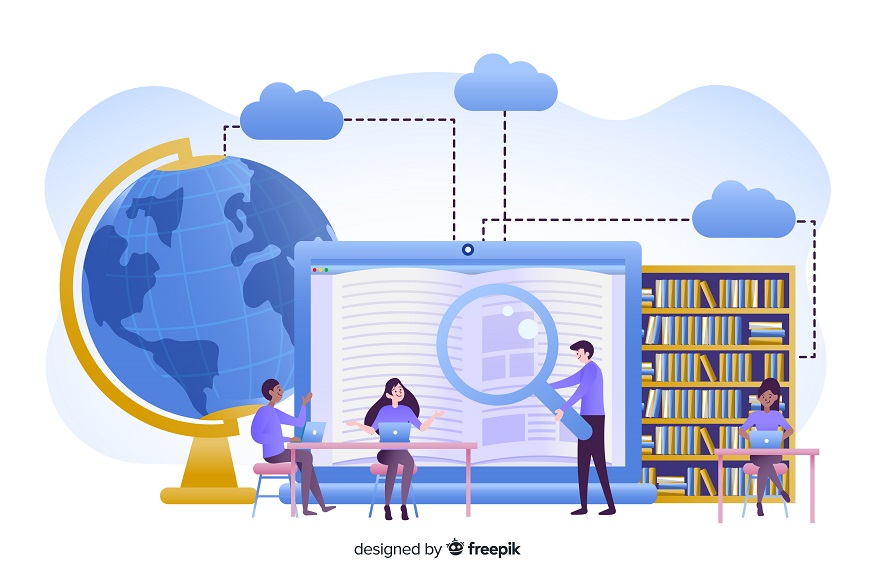Global interconnectedness is becoming the rule rather than the exception, and education must change to reflect this shifting environment. It is impossible to overestimate the value of a global perspective in education. It is crucial to make sure that students have a comprehensive awareness of the globe as boundaries erode and cultures merge. By presenting different perspectives and narratives, a global perspective not only enhances the learning process but also equips students with the skills they need to survive and prosper in a society where cross-border cooperation is the norm.
Historical Context
To appreciate the weight of global education, it’s crucial to understand its historical context. Traditionally, education was heavily localised. Curricula reflected regional histories, cultures, and values, often to the exclusion of global content. This was understandable given the limited interactions between distant nations and communities in eras past. However, the last century witnessed an explosion of global interactions, first through the advent of faster transportation and later through digital technology. As boundaries faded and economies interlinked, the necessity for a global perspective in education began to emerge.
Preparing for a Globalised World
The world students will inherit is one where they will routinely interact with peers from vastly different backgrounds, work for international corporations, or even start businesses that cater to a global audience. Thus, students need to be culturally agile, understanding of international markets, and empathetic to global issues.
A global perspective in education facilitates this by:
Promoting Cultural Understanding: Knowledge about various world cultures, traditions, and histories helps students appreciate diversity and reduces ethnocentric views. This cultural literacy is invaluable in an age where collaboration across borders is routine.
Fostering Critical Thinking: Addressing global challenges, such as climate change, requires the ability to understand complex interdependencies. A global curriculum encourages students to think critically, analyse multifaceted problems, and envision holistic solutions.
Building Language Skills: Multilingualism is an asset in the global marketplace. By encouraging language studies, educators not only foster communication skills but also provide students a gateway into understanding other cultures.
Addressing Global Challenges
Today’s students are tomorrow’s leaders. They will face challenges that are inherently global in nature, be it climate change, pandemics, or issues related to international trade and politics. By embedding a global perspective within education, we are equipping these future leaders with the tools they need to address these problems effectively. They become not just citizens of their native countries but global citizens, ready to take collective actions for the betterment of humanity. To truly appreciate the importance of a global perspective in education, we must delve deeper into how it equips young minds to address these challenges.
Understanding Climate Change: One of the most pressing concerns of our time is the looming spectre of climate change. Understanding its implications requires a multi-disciplinary and global approach. Students need to grasp the science behind rising temperatures, the socio-economic impact on vulnerable populations, the geopolitics of renewable energy, and the ethics of environmental responsibility. A globally-focused curriculum can interweave all these facets, enabling students to comprehend the magnitude of the challenge and encouraging innovative solutions.
Tackling Health Pandemics: The recent COVID-19 pandemic highlighted the intricate connections between nations and the importance of collaborative solutions. A global perspective in education can introduce students to the complex world of international health policy, global vaccine distribution, and the socio-cultural implications of health crises. By understanding past and present pandemics from a global viewpoint, students can be at the forefront of formulating cohesive, globally-minded strategies for future health challenges.
Promoting Universal Human Rights: While human rights might be a universally accepted concept, its application and challenges vary across regions. A global education equips students with the knowledge of these disparities, the historical and socio-cultural reasons behind them, and the skills to advocate for a more just and equitable world.
Broadening Horizons and Enriching Learning
A global perspective doesn’t just benefit students in terms of skill acquisition; it also enriches their learning experience. When a student in London reads about the history of the Silk Road, understands the socioeconomic nuances of Africa, or studies the intricate art forms of Asia, their horizons expand. They are introduced to a myriad of ideas, beliefs, and ways of life, making their learning journey more vibrant and comprehensive.
Building Empathy and Social Skills
One of the often-overlooked advantages of a global perspective in education is the fostering of empathy. When students are exposed to global narratives – stories of people from different walks of life, facing diverse challenges and experiences – they develop empathy. They learn to put themselves in others’ shoes, understanding feelings, motivations, and desires. Such empathetic individuals are more likely to be effective communicators and collaborators.
A Caveat: Avoiding Surface-level Globalisation
While the merits of global education are evident, it’s vital to ensure that such an approach doesn’t become superficial. It’s not enough to have occasional cultural festivals or one-off lectures on global topics. A truly global curriculum needs to be integrated and comprehensive, weaving international perspectives throughout various subjects, ensuring depth, and fostering genuine understanding.
As the British educationalist Sir Ken Robinson once remarked, the challenges of the 21st century are global in nature, and we need to think differently about education to prepare our young people for the world they will inherit. Infusing education with a global perspective is not just a modern trend; it’s an imperative. For students to navigate the complex terrains of the future, they need to be grounded in an education system that is as vast, diverse, and interconnected as the world around them. A global perspective in education is not just about broadening horizons; it’s about preparing students for a future where the local and the global are intrinsically linked, and where understanding the wider world is key to personal, professional, and societal success.
So, if you’re worried about shaping the early learning years of your child by enrolling them in the right place, then consider EuroKids, wherein we provide a stimulating learning atmosphere for the kids.











